
University is where you shape your career and acquire new skills to build a bright future.
However, it’s also important to balance your studies and other aspects of life.
Cornell University researchers have shown that taking breaks of 5–60 minutes from studying refreshes your brain and body, increasing your energy, productivity, and ability to focus.
You can play your favorite video games in your free time or entertain yourself, which will help relax your mind and increase your working potential.
The first thought that comes to mind after hearing the term gaming is often a gaming laptop.
So, are gaming laptops good for university too?
The answer is yes; gaming laptops are excellent tools for university students. With their powerful performance and versatility, you can do gaming, study, and learn new skills like video editing, graphic design, etc.
You can use your gaming laptops to quickly take notes, make presentations, and do research-heavy browsing. If you want a portable but powerful machine, gaming laptops are an amazing choice.
However, there are a few downsides to a gaming laptop as well, such as more weight and low battery life, which you should keep in mind before considering a gaming laptop for university.
In this blog post, we will discuss the needs of university students, the features of gaming laptops that make them useful for university students, the pros and cons of using them in university settings, and much more.
So, let’s dive in.
Laptop Hardware Requirements for University or College Students
When you are in university, your maximum time goes into attending classes, solving assignments, learning new skills, and having fun with your friends. Whatever you do, your laptop will always be there with you.
Your laptop will guide you through your studies and keep you connected with your classmates; it’s not just a device but an essential part of your life.
So, you should know what you exactly need from your laptop to squeeze out its maximum potential and avail benefits throughout your academics.
Let’s discuss the key specs requirements for university students.
Processor (CPU)
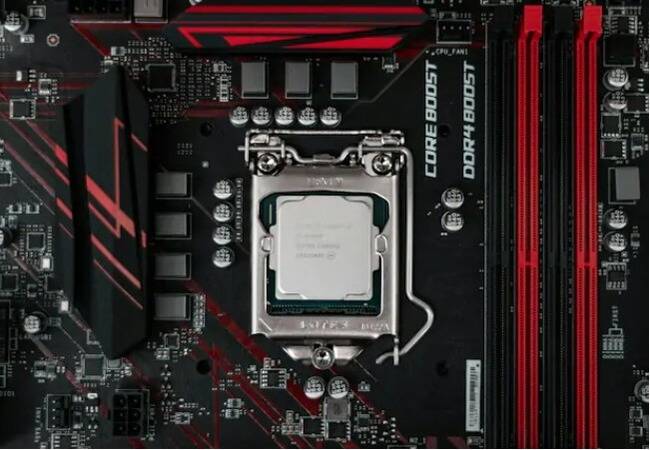
A processor is the most important part of your laptop; it controls the entire functioning of your operating system and software.
The processor requirement mainly depends on your workflow.
An Intel Core i3 or Ryzen 3 (latest generation) works great if you do normal tasks like web browsing, writing emails, editing documents, coding or programming, attending online classes, or streaming videos.
You can also do basic video editing without complex effects and play older game titles without any issues. You can play Android games using an emulator as well.
If you are planning to do 1080p video editing, play demanding games, run high-end software, or do heavy coding, I would suggest you go for an i5 or Ryzen 5 processor of the latest generation.
A university student’s requirement generally gets fulfilled with an i5 or Ryzen 5.
However, if you are planning to do some next-level editing, high-end creative work, run multiple virtual machines, do heavy 3D modeling, or do anything super crazy, you can go for an i7/Ryzen 7 or even an i9/Ryzen 9 processor laptop.
These laptops will be crazy expensive, so I would suggest you build a custom PC to save your money.
An expensive laptop is not worth it, to be honest, as you can get good value for money if you build a PC for a similar cost to that of a laptop.
Graphics Card (GPU)

Most consumer laptops available on the market come with an integrated GPU, which is usually sufficient for basic tasks and software like Photoshop.
You may also do 1080p video editing, provided you have a decent CPU. You may easily play light games like Asphalt 9 or CPU-intensive games like Valorant.
However, if you want to play heavy games, do professional design work, or do high-end video editing, a dedicated graphics card is essential.
You may look towards a gaming laptop in such cases, as they can handle graphically intensive workloads easily.
Here are a few GPU recommendations from my side:
- Light gaming, basic video editing: NVIDIA GeForce GTX 1650 or AMD Radeon RX 5500.
- Moderate gaming, 1080p video editing: NVIDIA GeForce RTX 3050 or AMD Radeon RX 6600.
- Demanding gaming and 4K video editing: NVIDIA GeForce RTX 3070 or AMD Radeon RX 6800.
Memory (RAM)

As per 2024 standards, the minimum RAM requirement is at least 16 GB.
Please don’t go for 8 GB unless your budget is too tight. Even if you go with an 8 GB variant of a laptop, ensure that your laptop has an additional RAM slot for upgrading and future-proofing.
16 GB of RAM is usually sufficient for the majority of students, and it can easily handle heavy software, games, and video editing workloads.
You can go for 32 GB of RAM if you are planning to do super-intensive tasks such as machine learning, large data analysis, complex graphic design, large-scale 3D modeling, or playing very big AAA titles with mind-blowing graphics.
Storage (SSD/HDD)

It’s the 2024 and 5G era; don’t go for a laptop with only a hard disk as a boot option, even by mistake.
Ensure to go for a laptop with a fast SSD for fast boot and app opening times.
I would suggest you go for 512 GB of SSD storage for keeping your university projects, games, and other files.
Also, please ensure that your SSD is an NVMe SSD, as it is a normal standard as of 2024; don’t go for SATA SSD storage.
You may also go for the SSD+HDD storage option for a snappy system experience, fewer boot times, and enough space for your files and media.
Display quality and size
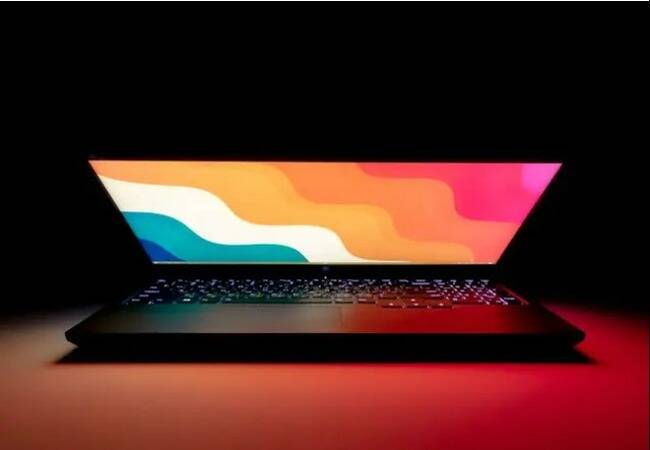
You will be looking at your laptop’s display rather than anything else, so it’s very important to have a good-quality screen.
I would suggest a 1080p anti-glare display for better viewing angles and sharper pictures.
Also, go for IPS panels, as they offer better viewing angles and color accuracy than TN panels.
You can also consider OLED for its exceptional colors and contrast, but be mindful of potential burn-in issues and its expensive cost.
If you are doing any work that involves colors, like graphic design or 3D modeling, get a laptop with a color-accurate display.
Also, it’s important to get the right size display; 13–14 inches is ideal for portability, while 15–16 inches offers better visibility. You may choose it based on your needs and preferences.
Keyboard and input options

A usually ignored but very important thing is choosing a laptop with a good keyboard that has good build quality and minimum flex.
You will use your keyboard for every task you do on your laptop; it’s important that you feel relaxed and that your hands don’t ache while typing for long hours.
I would suggest you get a backlit keyboard for working in low-light environments.
You may look for a comfortable keyboard layout with enough spacing, as it reduces strain on your wrists.
Also, ensure that your laptop’s touchpad is responsive and supports multi-touch gestures.
You may also go for a laptop with a touchscreen display, as it’s convenient for note-taking, drawing, or using touch-based applications.
Connectivity ports
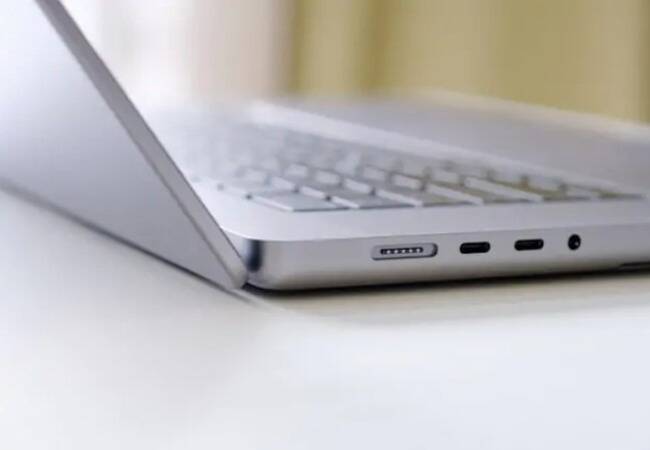
When choosing a laptop, you should also prioritize connectivity options.
You’ll need at least two USB-A ports and one USB-C port for peripherals, while Thunderbolt 4 offers extra speed and display options.
Consider HDMI or DisplayPort for connecting external monitors or your class projector.
You may look for an SD card reader if you make videos for YouTube and want to manage it.
An Ethernet port is optional but provides rock-solid wired internet connections.
Audio quality

Whenever you want to take a break from your studies and enjoy some multimedia content on your laptop, your speakers will play an important role.
You cannot expect your laptop’s speakers to provide excellent bass or quality like a dedicated speaker, but make sure that they are decently loud and audible.
Ensure that your laptop has a good-quality headphone jack for enjoying music deeply.
Also, ensure that your laptop has a good-quality microphone for meetings and online classes.
Advantages of Using Gaming Laptops for University or College
A gaming laptop is an all-rounder and capable device for almost all your university needs as well as creative workflow.
Let’s look at some of the benefits of using a gaming laptop at your university or college.
Enhanced performance for demanding tasks
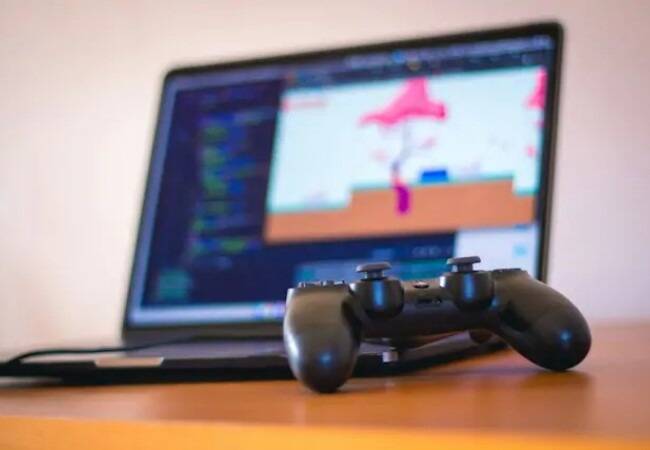
Gaming laptops are absolute all-rounders when it comes to performance.
They have a powerful CPU and dedicated GPU, which are capable enough to handle your resource-hungry games and workloads.
They have the latest generation of CPUs, which have both performance cores for high-end tasks and efficiency cores for normal tasks, increasing your battery backup.
You can easily do 3D modeling and rendering work if you are in engineering or design courses.
You may also do data analysis and machine learning due to the capabilities of your laptop.
A gaming laptop can also run multiple demanding applications simultaneously due to more and faster RAM.
This is very beneficial for your creative workflow, such as video editing and 2D/3D animation.
The robust cooling system in gaming laptops also ensures sustained performance over long hours of gaming or working.
Versatility Beyond Gaming

A gaming laptop is not just meant for gaming; it’s good enough to handle other heavy-duty tasks without any issues.
This makes your laptop a multipurpose device; it’s a source of entertainment, knowledge, skills, and a lot more.
The high-resolution displays in these laptops offer stunning visuals for presentations, design work, and entertainment.
The backlit keyboards in these laptops are perfect for late-night study sessions or writing assignments.
Durability and Longevity
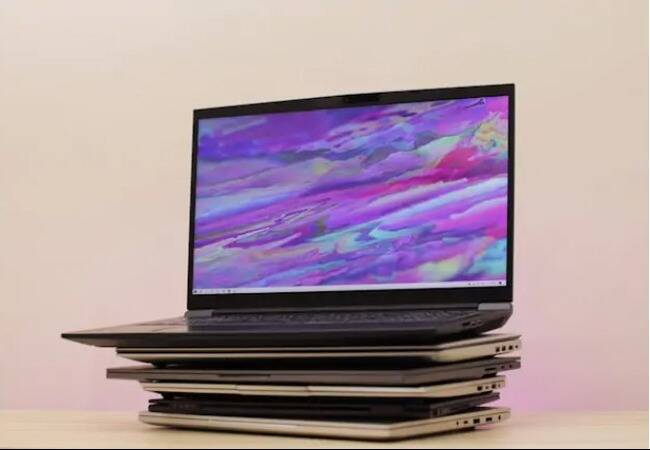
Gaming laptops are built like a tank and easily last longer than a normal laptop.
These laptops have very good build quality and can easily handle a few accidental shocks while carrying them to your university or anywhere else.
These laptops also have better thermal performance under heavy workloads, leading to better long-term stability.
Future-proofing and upgradability
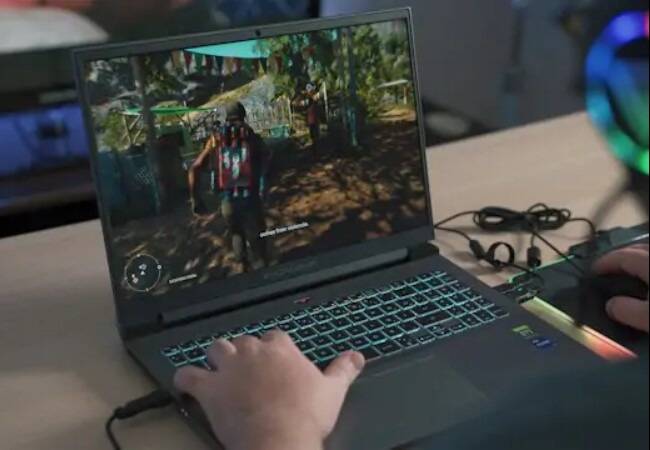
Tech is evolving very fast, and it’s important to stay updated as per the market’s demand.
It’s important that your laptop can handle the newly launched games and software.
The hardware of a gaming laptop is powerful enough to handle the load of new games and software.
This makes it cost-effective in the long run, as you don’t need to buy a new laptop to fulfill your software needs, and the same gaming laptop could support you over the years.
Many gaming laptops also provide better upgrade options in terms of storage and RAM, making them future-proof.
Disadvantages of Gaming Laptops for Universities and Colleges
Gaming laptops are excellent devices, especially when it comes to power and longevity.
However, it is still not perfect for everyone. Let’s discuss the drawbacks of a gaming laptop, which may be a deal-breaker for you.
Cost considerations

Gaming laptops are top-of-the-line machines, so they cost a lot more than regular ones.
You should always consider your needs and preferences before paying for that extra power.
There are some extra costs involved, like upgrades or accessories like extra memory or a fancy mouse, an RGB keyboard, headphones, etc. Please consider these costs before purchasing a gaming laptop.
Portability and weight issues
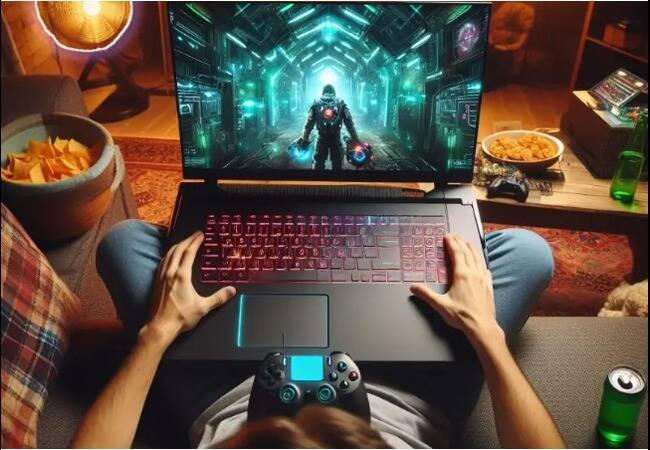
The bulkiness of gaming laptops makes them less than ideal for students constantly on the move, adding weight to daily commutes and potentially posing space issues in smaller classrooms.
Battery life concerns
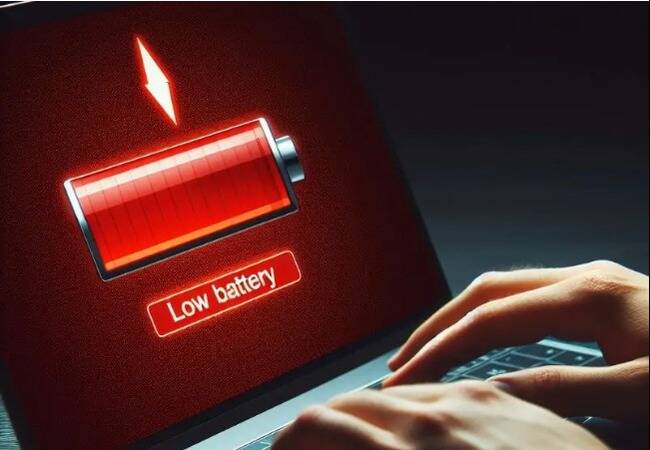
Gaming laptops use up battery power faster than regular ones, so they need to be plugged in more often. This can be tricky during long classes when finding a power outlet might be hard.
Potential distractions and time management challenges
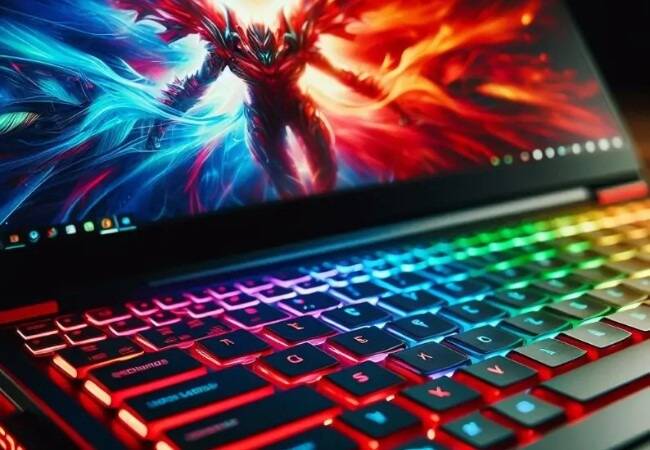
Gaming laptops have awesome gaming features that can make it hard to focus on studying.
It takes discipline and good time management to resist playing games and stay on top of your schoolwork.
Software and Hardware Optimization For Best Experience
Performance Powerhouse
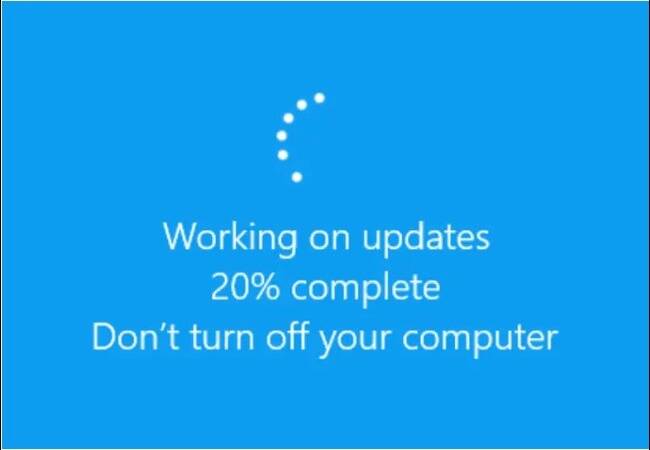
You can optimize your laptop’s performance and stability by following these steps:
- Clean Up the Clutter: Remove unused programs and clear temporary files to free up disk space and RAM.
- Task Manager Management: Identify and close programs that use a lot of resources, especially during presentations or video editing.
- Update Regularly: Keep your operating system, drivers, and software up-to-date for security and performance improvements.
- Antivirus Protection: Use reliable antivirus software to protect your system and optimize performance. Look for student discounts for affordable options.
Battery Life Boost
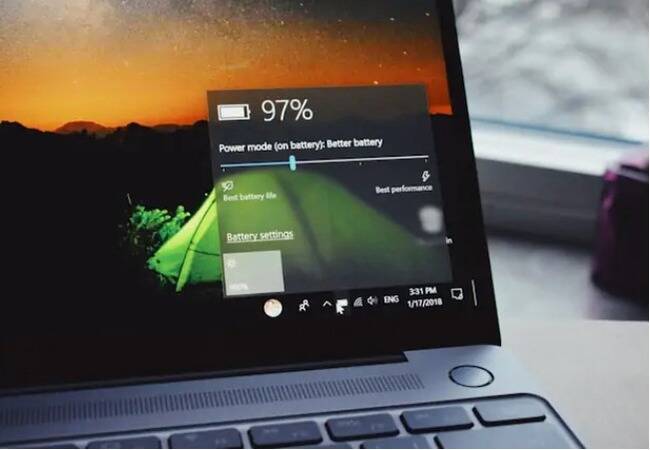
I would suggest you follow these tips to keep your laptop’s battery healthy and increase it’s lifespan:
- Brightness Adjustment: Dim the screen to save the battery, adjusting the brightness as needed.
- Power-Saving Mode: Switch to power-saving mode when unplugged and adjust settings to conserve battery.
- Wireless Management: Disable Wi-Fi and Bluetooth when not in use to save battery and avoid unnecessary connections.
- Airplane Mode: Activate airplane mode in areas with no Wi-Fi to maximize battery life.
Laptop Longevity Tips
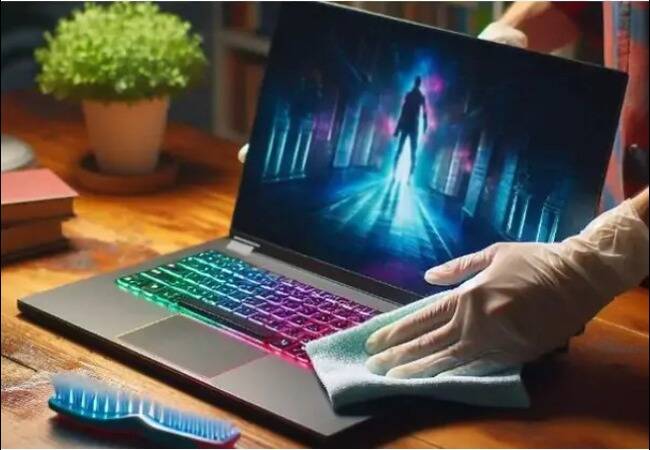
- Dust Cleaning: Regularly clean air vents and keyboards to prevent dust buildup, which can cause overheating.
- Temperature Control: Avoid using your laptop on soft surfaces like beds, as they can block airflow and cause overheating. Consider using a cooling pad for heavy workloads.
- Battery Care: Aim to keep your battery between 20% and 80% for optimal lifespan and avoid complete drains.
- Backup Routine: Back up important data regularly to external storage or the cloud to prevent loss in case of damage or hardware failure.
Remember that optimization is a lifelong process. Incorporate these tips into your routine to ensure your laptop runs smoothly, lasts longer, and supports your academic journey while being eco-conscious.
Conclusion
I hope this blog post helped you make the right decision about whether you should consider a gaming laptop for your college or university or not.
If you find this post good, please share it with your friends to help them make smart decisions.
Also, please share your valuable feedback about this blog post in the comment section and let me know if you are using your gaming laptop for your university.
Thanks for reading my blog post!! I really do appreciate it.
Frequently Asked Questions
Can a gaming laptop handle my specific major (e.g., engineering, graphic design)?
Yes, powerful CPUs & GPUs in gaming laptops tackle demanding software used in engineering, graphic design, etc. Check specific software requirements for confirmation.
Is a gaming laptop overkill for basic tasks like note-taking and web browsing?
Possibly yes. Consider lighter laptops for note-taking and browsing if portability & affordability are priorities.
How much noise does a gaming laptop make under heavy load, and will it be distracting in class?
Noise levels vary by model. Some have quieter fans, but under heavy load, expect moderate noise levels that might distract in quiet settings.
Do gaming laptops offer better durability compared to regular laptops for frequent travel and carrying?
Generally yes. Rugged build and better thermal management enhance durability, but be mindful of accidental drops.
What additional accessories (e.g., mouse, headset) do I need to consider for optimal gaming and productivity on a gaming laptop?
A comfortable mouse and good headphones enhance both gaming & productivity. Consider external storage for large files.
How can I optimize a gaming laptop’s battery life for longer unplugged use during lectures or study sessions?
Reduce screen brightness, use power-saving mode, and disable unused connections like Wi-Fi & Bluetooth. Consider a portable charger for extended unplugged use.
Does the RGB lighting and “gamer aesthetic” of a gaming laptop make it unprofessional for university settings?
It depends on your study environment mostly, you may opt for sleek, minimalist gaming laptops or disable RGB lighting for a more professional appearance.
Also Read….
- Are Gaming Laptops Good for Business Use? [2024]
- Are Gaming Laptops Good for Trading? [2024]
- Are Gaming Laptops Good for Office Work? [2024]
- Are Gaming Laptops Good for Game Development? [2024]
- Are Gaming Laptops Good for Graphic Design? [2024]
- Are Gaming Laptops Good for Programming? [2024]
- Are Gaming Laptops Good for Autocad? [2024]
- Are Gaming Laptops Good for Video Editing? [Ultimate Guide for 2024]
- Are Gaming Laptops Good for School? [5 Surprising Benefits]
Hi, I’m Vishal, founder of Gaming Bar, your ultimate hub for gaming and tech gear. I am passionate and dedicated to improving your gaming experience and providing honest reviews about gaming and tech products. You’ll find plenty of honest, unbiased reviews, buying guides, and expert opinions presented in an engaging manner. All I ask is that you share my blog posts and support me.
